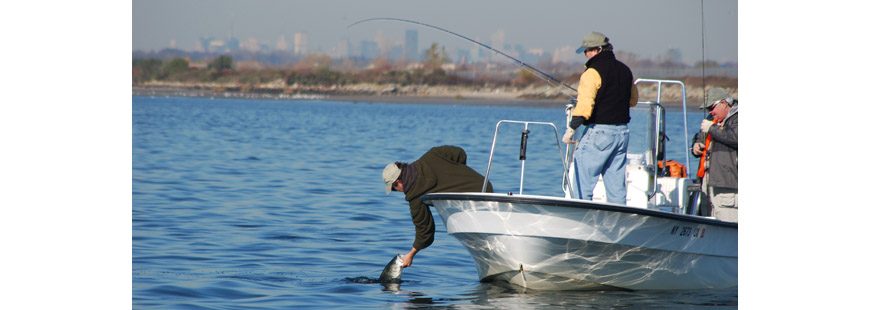Photo by John McMurray.
On September 12, lifelong saltwater angler Tony Friedrich testified before the Senate Commerce Committee’s Subcommittee on Oceans, Atmosphere, Fisheries, and Coast Guard – a hearing titled “Reauthorization of the Magnuson-Stevens Fishery Conservation and Management Act: Oversight of Fisheries Management Successes and Challenges.” Friedrich’s testimony, about management successes under Magnuson-Stevens, was clear and important. Recreational fishermen ought to check it out.
As Friedrich testified, while no law is perfect, since its reauthorization in 1996, the MSA process has reduced the number of overfished stocks in US waters from 86 to 30. There could hardly be a less ambiguous indication that the MSA process is working for our nation’s fisheries. And there is nothing better for America’s fishermen and coastal communities than robust, sustainable fisheries.
In particular, annual catch limits (ACL’s), concrete rebuilding timelines for depleted stocks, and accountability measures for all stakeholders, are keystones of the MSA process that have been crucial for the recovery and protection of our fisheries. We have reaped the benefit of management under MSA, with many American stocks having now returned to levels of abundance not seen within the lifetimes of most anglers. To a great extent, America’s fisheries are as healthy as they have been in a very long time. We are now living in “the good old days.”
It is therefore bewildering to see efforts being undertaken in some quarters to weaken or eliminate the very MSA provisions that have underwritten such significant recovery. These efforts typically pass under euphemistic guises about “flexible access,” or the “modernizing” of management. The irony is that the MSA process, as it stands, offers considerable flexibility, and the things that the “modernizers” seek to eliminate (ACL’s, rebuilding timelines, and accountability measures) are the very provisions that brought our fisheries out of the dark days of the late 20th century and into the comparatively bright light of the 21st. We have seen what happens to fisheries without such provisions, and it isn’t good.
None of which is to say that MSA is perfect; nothing is, this side of paradise. Congress ought to allocate more funding for fisheries science, which more adequately reflects the enormous economic impact of recreational fishing. Likewise the Marine Recreational Information Program (MRIP) could be strengthened by leveraging technologies that didn’t exist when MRIP began, but which have since become ubiquitous. Practically every fisherman in America now has a smartphone in his pocket.
We owe it to future generations of recreational anglers, to our children and our grandchildren, to leave our coastal and marine resources better than we found them. Trading the future sustainability of our fisheries for more access now, is a Faustian bargain. Recreational fishermen ought not to fall for it.



Pingback: Eliminating provisions of MSA is a mistake – Fly Life Magazine